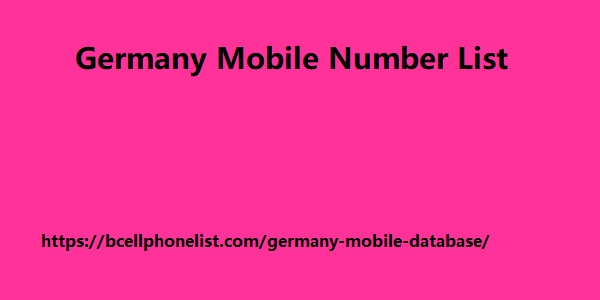Post by account_disabled on Mar 11, 2024 8:24:17 GMT
Approval flows, and send automated reminders to ensure deadlines are met and contracts are properly executed. Enterprise resource planning (erp) systems: some erp systems include contract management modules that help control contracts, their terms and conditions, and their integration with other business areas. These tools allow comprehensive monitoring of contracts and their impact on the organization's operations and finances. It should be noted that these are just some of the technological tools commonly used in contract management, but the most complete is contract management software (clm). E-book cover boost your knowledge: contract management manual clm software: the best way to manage contracts clm (contract lifecycle management) has been established as the best way to manage contracts efficiently and effectively. It provides a comprehensive solution for the entire contract lifecycle, from request and negotiation to execution and monitoring.
Here's how a clm can improve contract management in large companies: 1. Centralization and organization : one of the key advantages of clm is that it centralizes all contracts on a single platform. This allows quick and easy access to contractual information, eliminating the Germany Mobile Number List need to search for documents in physical folders or different storage systems. With a clm, contracts are organized in a structured way, making it easy to search, classify and manage contractual documentation. 2. Efficient creation and negotiation: a clm offers predefined and customizable templates to create contracts quickly and accurately. These templates include standardized clauses and terms, helping to ensure consistency and compliance. Additionally, the software enables real-time collaboration between legal teams and negotiation stakeholders, streamlining the process of reviewing and approving contracts with third parties.

Monitoring of deadlines and automated alerts: the clm allows you to establish reminders and automatic alerts to guarantee adequate monitoring of contractual deadlines. This helps avoid delays in contract execution, inadvertent renewals or failure to comply with important terms and conditions. Using a clm, it is possible to set expiration notifications, renewal reminders, and other relevant alerts for each contract. 4. Version control and auditing: clms record and maintain a complete history of all versions of the contract, including changes made and who made them. This provides complete traceability of the document's evolution and facilitates internal and external auditing. Clm version control ensures that you always have access to the latest version of the contract and avoid any confusion or discrepancies in the agreed terms. 5. Regulatory compliance and risk reduction : a clm helps ensure regulatory compliance by facilitating adherence to applicable policies, regulations and legal standards. Clm templates and predefined clause libraries can include specific terms to address legal requirements and mitigate risks .

